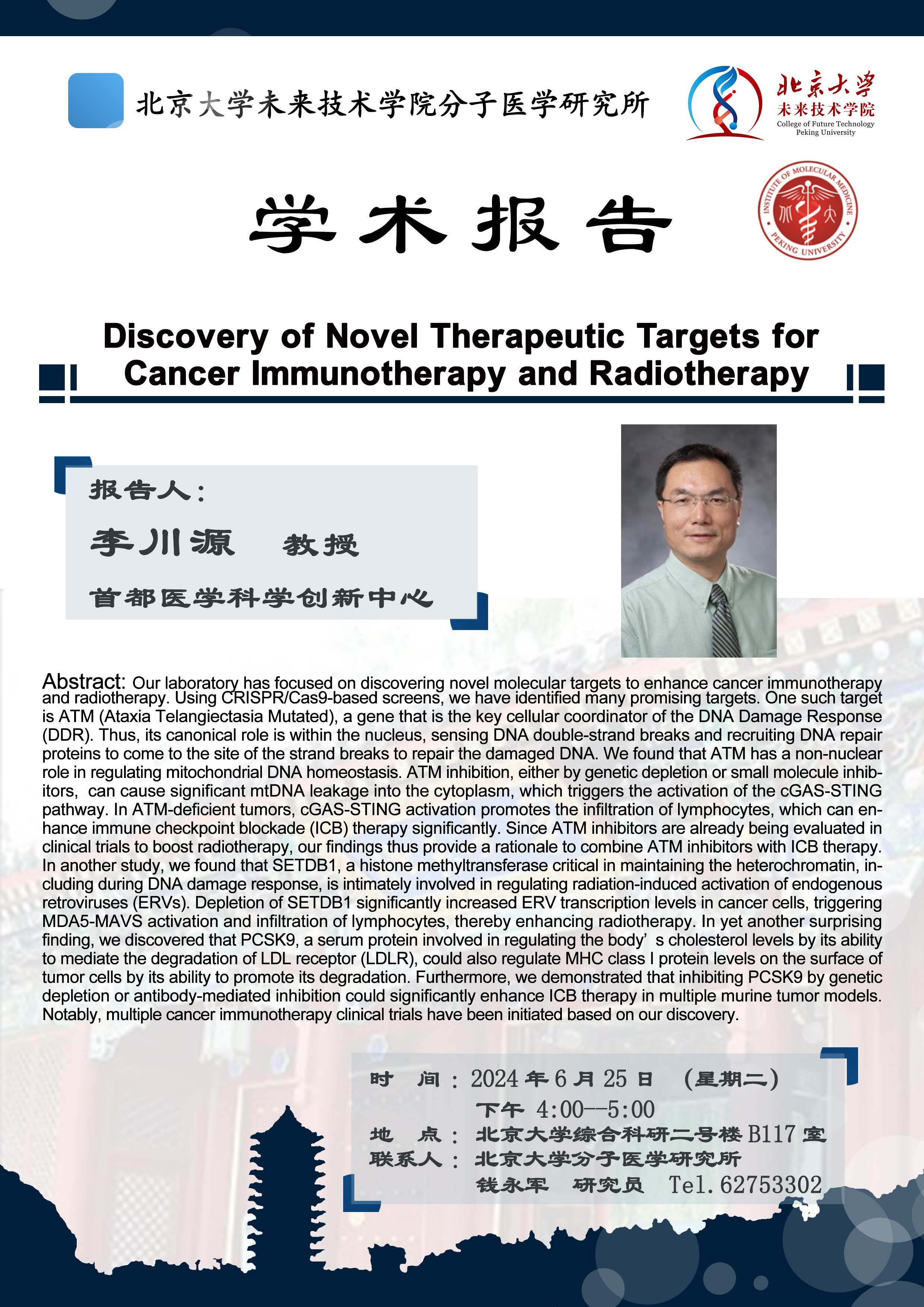
Speaker: Prof. Li Chuanyuan, Chinese Institutes for Medical Research Beijing
Time: 16:00-17:00 p.m., Jun 25, 2024, GMT+8
Venue: Rm. B117, Research Complex #2, PKU
Abstract:
Our laboratory has focused on discovering novel molecular targets to enhance cancer immunotherapy and radiotherapy. Using CRISPR/Cas9-based screens, we have identified many promising targets. One such target is ATM (Ataxia Telangiectasia Mutated), a gene that is the key cellular coordinator of the DNA Damage Response(DDR). Thus, its canonical role is within the nucleus, sensing DNA double-strand breaks and recruiting DNA repair proteins to come to the site of the strand breaks to repair the damaged DNA. We found that ATM has a non-nuclear role in regulating mitochondrial DNA homeostasis. ATM inhibition, either by genetic depletion or small molecule inhibitors, can cause significant mtDNA leakage into the cytoplasm, which triggers the activation of the cGAS-STING pathway. In ATM-deficient tumors, cGAS-STING activation promotes the infiltration of lymphocytes, which can enhance immune checkpoint blockade (ICB) therapy significantly. Since ATM inhibitors are already being evaluated in clinical trials to boost radiotherapy, our findings thus provide a rationale to combine ATM inhibitors with ICB therapy. In another study, we found that SETDB1, a histone methyltransferase critical in maintaining the heterochromatin, including during DNA damage response, is intimately involved in regulating radiation-induced activation of endogenous retroviruses (ERVs). Depletion of SETDB1 significantly increased ERV transcription levels in cancer cells, triggering MDA5-MAVS activation and infiltration of lymphocytes, thereby enhancing radiotherapy. In yet another surprising finding, we discovered that PCSK9, a serum protein involved in regulating the body's cholesterol levels by its ability to mediate the degradation of LDL receptor (LDLR), could also regulate MHC class I protein levels on the surface of tumor cells by its ability to promote its degradation. Furthermore, we demonstrated that inhibiting PCSK9 by genetic depletion or antibody-mediated inhibition could significantly enhance ICB therapy in multiple murine tumor models. Notably, multiple cancer immunotherapy clinical trials have been initiated based on our discovery.
Source: College of Future Technology, PKU
